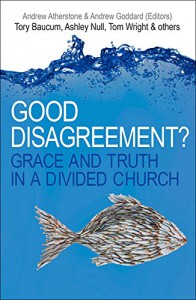Canterbury Tales
 Gill and I had a wonderful opportunity to be in Canterbury last week. Canterbury Cathedral had made a “Canterbury Cross” for our former church, St. David’s Cathedral in Hobart, and it was being handed across to friends of ours, one of whom is a QANTAS pilot, for transport back to Tasmania. We were warmly welcomed by Dean Robert and Receiver-General and introduced to the stonemasons who had carved the cross from stone taken from the South Transept during the current restoration works of the South Window.
Gill and I had a wonderful opportunity to be in Canterbury last week. Canterbury Cathedral had made a “Canterbury Cross” for our former church, St. David’s Cathedral in Hobart, and it was being handed across to friends of ours, one of whom is a QANTAS pilot, for transport back to Tasmania. We were warmly welcomed by Dean Robert and Receiver-General and introduced to the stonemasons who had carved the cross from stone taken from the South Transept during the current restoration works of the South Window.
I was unexpectedly moved by the Cathedral itself. We have visited a number of ancient buildings now, and I was expecting to be impressed. But, more than that, I was moved. The atmosphere was warm and friendly and the history was palpable. Some churches are mausoleums, or grand statements of power. This was a place to pray and worship.
The Anglican Church is a very old tree. When you explore it you encounter living branches and dead wood, new buds and once majestic boughs now riddled with dry rot. At Canterbury I found some deep and living roots. It moved me.
And all the more as our visit coincided with the now-much-talked-about meeting of the Anglican Primates. I had found myself praying for these leaders as their meeting started. I am an international Anglican and the Communion is precious to me. It is, of course, much damaged and stained at the moment, but my heart for it remains: Oh Lord, let not this entity, this thing, this confused mass of institution and history and culture and politics, dishonour you; but fill it with life, and renew and restore it; let it truly reflect your one holy catholic and apostolic church.
There was every chance that my visit to Canterbury would coincide with a full and final expression of its demise. I’ve been watching the growing fractures for over a decade now. I know the issues at hand. I know something of the personalities involved. As I walked past the place where the Primates were meeting, I prayed for them, and not least for Justin Welby. Because, after all, and particularly in the light of the tone and demeanour of an unfortunate many who have responded to the meeting, he needs it:
1 Corinthians 4:9 For I think that God has exhibited us apostles as last of all, as though sentenced to death, because we have become a spectacle to the world, to angels and to mortals. 10 We are fools for the sake of Christ, but you are wise in Christ. We are weak, but you are strong. You are held in honor, but we in disrepute. 11 To the present hour we are hungry and thirsty, we are poorly clothed and beaten and homeless, 12 and we grow weary from the work of our own hands. When reviled, we bless; when persecuted, we endure; 13 when slandered, we speak kindly. We have become like the rubbish of the world, the dregs of all things, to this very day. (NRSV)
As far as the outcome of the meeting goes, I am, myself, cautiously encouraged. In my mind the outcome is more in-line with the sense of communion than anything we’ve had from the Instruments in a long long time. What dismays me is the deliberate lack of grace and understanding with which the outcome has been articulated and communicated by many.
Autonomy does not mean independence and there are, therefore, some things that we hold in common. What those things are can only be determined collectively and collegially. It is now clear that the Anglican understanding of marriage is of that order. Whether or not the Americans have done the right thing in changing their doctrine of marriage, what is clear is that they deliberately did it alone, without adequately attending to their brothers and sisters either within or outside of their immediate jurisdiction. Irrespective of the rightness or wrongness of their position (for that is a totally different debate) it was certainly not right for them to bring their innovation to the Communion as fait accomplis. To this was added derogation of those who then sought to grapple with the now wounded relationship, accusing them of separatism and embarking on a path of litigiousness and deposition and therefore excluding them. It was not just appropriate, but necessary, for Abp. Foley Beach to be at this meeting.
If we are to be emotionally and ecclesiastically honest, this uncollegiality couldn’t simply be ignored. Justin Welby is right in his language about “sanctions” and “consequences.” The Primates cannot impose sanctions and tell a province what to do; but they can determine the nature of the collective, communal path, and express the consequences of TEC’s behaviour in the communal life of the Communion. This is what we have now. And it is a measured, mature response.
Very few reactions to the decision have been similarly marked.
As an evangelical committed to talking at the centre, I am a saddened by much of the rhetoric. I find myself thinking what I would say in various hypotheticals:
To my more conservative brothers and sisters: Trust God the Holy Spirit. Allow God to work. Don’t try and play this out and get ahead of what God is doing.
Don’t work on the next bunch of ultimatums. Don’t slip into the belligerence of “The Primates didn’t do enough” or into the triumphalism of “See, they’re never going to change.” Don’t just be correct in your analysis or your theology, be right in spirit, and generous in relationship. And be very careful, because sometimes you don’t speak the truth in love, and rather than sharing the gospel, you end up convincing others of the lie that the grace of God is peculiarly inaccessible to them. I’m preaching to myself here.
To my more progressive brother and sisters: Trust God the Holy Spirit. Allow God to work. Don’t try and play this out and get ahead of what God is doing.
Please pause and take stock. The way forward is not to belittle or tear down with accusations of cowardice or bigotry. Certainly avoid the aspersions towards African culture that have now been prevalent, some of which have been uninformed and bigoted. Be your best, with that sweetness of spirituality that can truly teach and lead the rest of us. On the issue at hand: if changing our doctrine of marriage is truly what is needed to pursue the will of God for human flourishing, then your task isn’t to defeat the other side, but to convince us and bring us with you; isn’t that the essence of Communion, trusting in God? Personally speaking, you haven’t convinced me, and I do not believe I am hardened of heart.
As Gill and I exited Canterbury Cathedral last week, a cold wind whipped up from what was a gentle breeze. It seems to have become a storm, and that’s a shame. Because the Primates took us to an honest but painful place, a step towards, not away from, good disagreement. We don’t know what happens next. But God is good.



